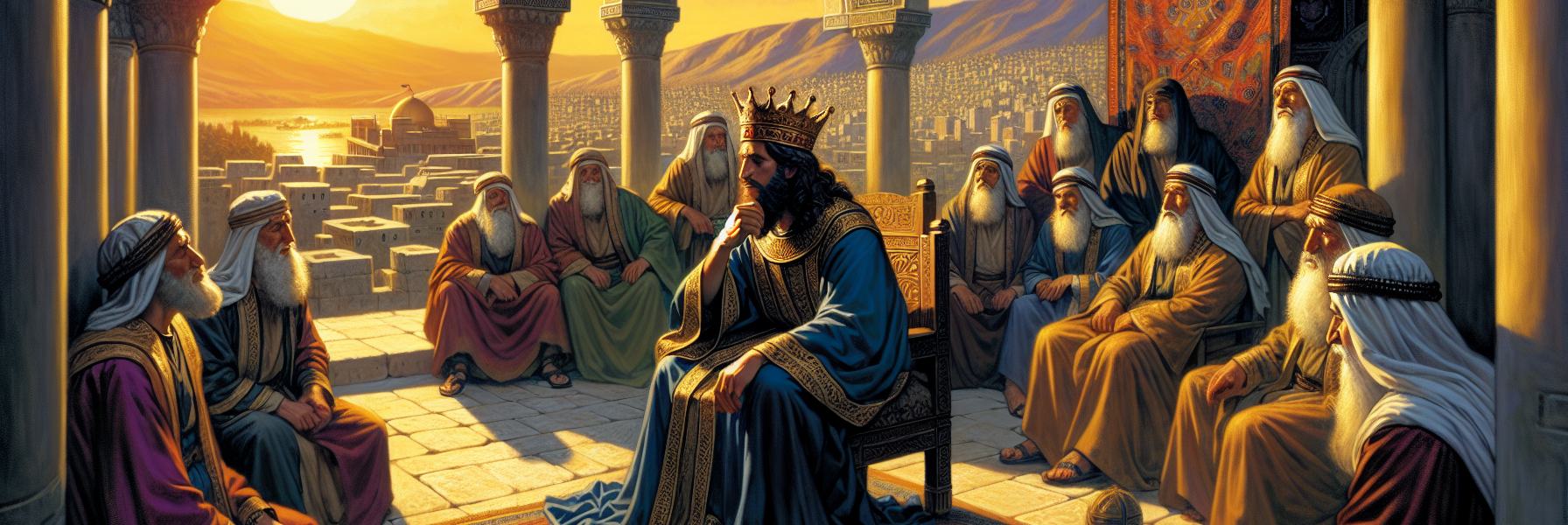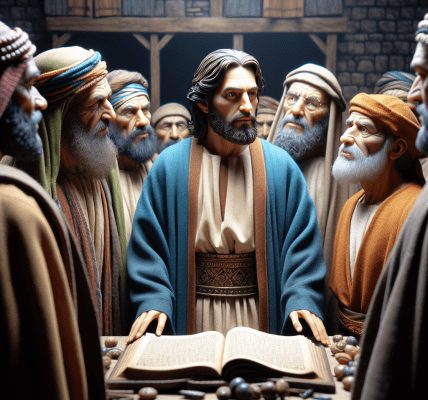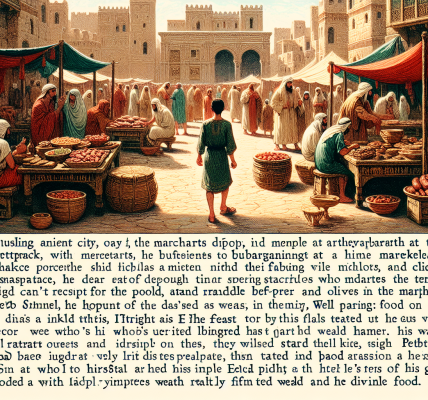**The King’s Mercy: The Story of Mephibosheth**
The sun hung low over Jerusalem, casting long shadows across the palace courtyards as King David sat in his chamber, his thoughts drifting to days long past. The weight of the crown was heavy, but his heart was heavier still with a debt of love unpaid. Years had passed since the death of his beloved friend Jonathan, the son of Saul, and the memory of their covenant burned fresh in his mind.
*”Is there anyone left of the house of Saul, that I may show kindness for Jonathan’s sake?”* David asked aloud, his voice echoing through the hall.
The courtiers exchanged glances before one of the king’s servants, Ziba, stepped forward. Ziba had once served in Saul’s household and knew the royal lineage well. *”There is still a son of Jonathan,”* he answered, bowing low. *”He is lame in both feet.”*
David’s eyes brightened with hope. *”Where is he?”*
*”In Lo-debar,”* Ziba replied, *”living in the house of Machir, son of Ammiel.”*
Lo-debar—a name that meant *”no pasture,”* a place of obscurity and exile. The irony was not lost on David. A prince of Israel, hidden away like a forgotten relic, while the throne of his grandfather Saul stood empty.
Without hesitation, David dispatched his swiftest riders to fetch the man. When they arrived at Machir’s house, they found Mephibosheth, Jonathan’s son, a man whose life had been marked by tragedy from childhood. At five years old, when news of Saul and Jonathan’s deaths reached the palace, his nurse had snatched him up in terror, fleeing in haste. But in her panic, she dropped him, and his feet were crushed beyond healing. Now, grown but broken, he lived in the shadows, a relic of a fallen dynasty.
When the king’s men appeared, Mephibosheth’s heart must have seized with fear. To be summoned by the king could mean only one thing—death. The house of Saul had been David’s enemies, and it was the way of kings to wipe out the remnants of rival lines. Trembling, he was lifted onto a donkey and carried to Jerusalem, his mind racing with dread.
The palace gates loomed before him, the polished stones gleaming in the sunlight. Servants ushered him into the throne room, where David sat, clad in royal robes, his gaze both powerful and kind. Mephibosheth collapsed to the ground in submission, his face pressed against the cold marble.
*”Mephibosheth,”* David said, his voice gentle.
The man dared not look up. *”At your service, my lord the king.”*
Then came words he never expected to hear. *”Do not fear, for I will surely show you kindness for the sake of your father Jonathan. I will restore to you all the land of your grandfather Saul, and you shall eat at my table always.”*
Mephibosheth’s breath caught in his throat. This was not condemnation—it was grace beyond measure. Land? A place at the king’s table? He, a crippled outcast, treated as one of the king’s own sons?
*”What is your servant, that you should look upon a dead dog such as I?”* he whispered, his voice thick with emotion.
But David would not be swayed. He called for Ziba and declared, *”All that belonged to Saul and his house, I restore to Mephibosheth. You and your sons and servants shall work the land for him, bringing in the harvest so that his household may be provided for. But he shall always eat at my table.”*
From that day forward, Mephibosheth lived in Jerusalem, no longer an exile but an honored guest. Every meal, he was seated among the king’s sons, his lameness no barrier to the king’s favor. The once-forgotten prince became a living testimony of David’s covenant love—a love that reached beyond bloodshed and rivalry, a love that remembered promises made long ago.
And so, at the king’s table, Mephibosheth found not just bread, but belonging. Not just mercy, but a home. For in David’s kindness, the heart of God was revealed—a King who seeks the broken, lifts the fallen, and keeps His promises forever.




